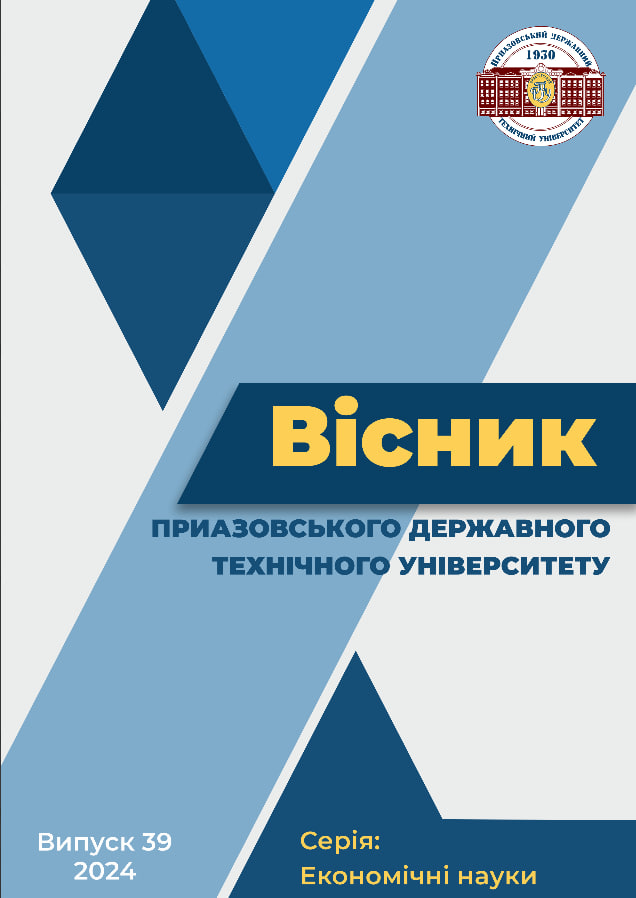
No. 1(39) (2024): REPORTER OF THE PRIAZOVSKYI STATE TECHNICAL UNIVERSITY Section: Economic sciences

https://doi.org/10.31498/2225-6725.39.2024
The collection is registered as a means of printed media. Decision No. 1821 of the National Council of Ukraine on Television and Radio Broadcasting dated 21.12.2023 (Protocol No. 31)
Published:
2024-05-30

